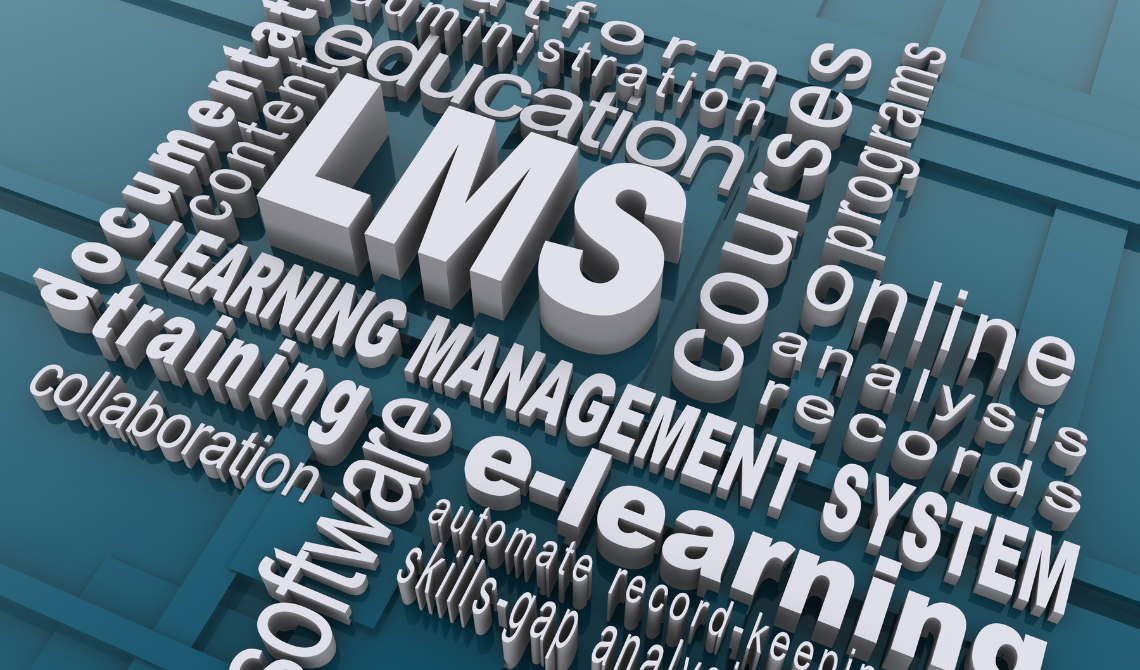The top 6 LMS platforms of 2023
As online education continues to grow, Learning Management Systems (LMS) have become increasingly important tools for educators and trainers to create, manage and deliver their courses.
However, with so many options available, choosing the right LMS platform can be a daunting task, especially for those on a tight budget.
In this article, we will explore the top 6 LMS platforms of 2023, based on their features, user reviews, and popularity.
Whether you are a teacher, trainer, or small business owner, this list will help you find the perfect LMS platform to suit your needs without breaking the bank.
What Are Learning Management Systems?

Learning Management Systems (LMS) are software applications designed to help educators and trainers create, manage and deliver educational content and courses online.
They provide a centralized platform where instructors can create and upload learning materials such as videos, presentations, quizzes, and assignments, and students can access them from anywhere with an internet connection.
LMSs often have features such as communication tools, progress tracking, and assessment tools to help instructors manage the learning process and monitor student performance.
Benefits Of LMS For Businesses

Learning Management Systems LMS for businesses has many benefits, including:
1. Cost-Effective Training
LMS allows businesses to deliver training to employees in a more cost-effective way as it eliminates the need for travel, printed materials, and instructor fees.
2. Flexibility
With an LMS, employees can access training materials anytime, anywhere, and on any device, which makes it easier for businesses to provide training to remote workers and those who work irregular hours.
3. Standardization
LMS helps businesses standardize their training materials, ensuring that all employees receive the same level of training, which helps maintain consistency across the organization.
4. Tracking And Reporting
LMS offers detailed tracking and reporting capabilities, which allow businesses to monitor employee progress, identify areas for improvement, and generate reports to demonstrate compliance.
5. Increased Engagement
LMS offers a variety of interactive features, such as quizzes, games, and discussion forums, which can increase employee engagement and motivation, leading to better retention of information.
6. Scalability
LMS is scalable, which means that it can handle an increasing number of learners and courses, making it a suitable option for businesses of any size.
Overall, an LMS for businesses can enhance the skills and knowledge of their employees, improve performance, and ultimately increase productivity and profitability.
The 6 Best LMS Platforms Of 2023

1. Oreed
Are you tired of juggling multiple systems to manage your employees' training and development needs?
Are you looking for an all-in-one solution to streamline your employee management process and take it to the next level?
Look no further than Oreed's LMS!
Enhance Employee Awareness
Oreed's LMS provides an exceptional way to enhance employee awareness, giving you a complete view of your workforce.
This allows you to make better-informed, evidence-based decisions that can help your business thrive.
With Oreed's LMS, you can identify skill gaps and training needs, and develop customized training courses that are tailored to your employees' specific needs.
Tailor-Made Training/Courses
Gone are the days of generic courses that don't resonate with your team. Oreed's LMS offers a solution that's truly bespoke to your business.
You can create training courses that are not only engaging and interactive but also aligned with your business goals and objectives.
Measure The Impact
But the benefits of Oreed's LMS don't end there.
Once the training is complete, Oreed's LMS allows you to measure the impact and effectiveness of your training courses.
You can track your employees' progress, identify areas for improvement, and make informed decisions about their ongoing development.
In summary, Oreed's LMS is a comprehensive, user-friendly solution that can help you enhance employee awareness, develop tailored training courses, and measure the impact of your training programs.
By choosing Oreed's LMS, you can streamline your employee management process and take your workforce to new heights of productivity and success.
So what are you waiting for? Book a demo with Oreed today and find out more about our features.
Promote lifelong learning through Oreed by experiencing the most powerful all-in-one training and development intelligent platform that streamlines all your organization's learning, training, and development activities in one place.
2. Moodle
Moodle is an open-source LMS that has been around since 2002 and has a large community of users and developers.
It is highly customizable and can be tailored to meet the specific needs of an organization.
Moodle offers a wide range of features such as customizable course creation, multimedia support, interactive forums, and progress tracking.
It also supports a variety of authentication methods and can be integrated with other tools such as video conferencing and e-commerce platforms.
Moodle is a reliable and robust LMS that is trusted by educators and trainers worldwide.
3. Canvas
Canvas is a cloud-based LMS that has gained popularity in recent years due to its user-friendly interface and advanced features.
It provides features such as automated grading, video conferencing, multimedia support, and mobile accessibility.
Canvas also offers a variety of customization options, including the ability to create custom course templates and content modules.
Canvas is a reliable and intuitive LMS that has become a popular choice for educators and trainers looking for a free option.
4. Google Classroom
Google Classroom is a free LMS that is part of the Google Suite of tools. It is designed for K-12 schools but is also used by higher education institutions and corporate trainers.
Google Classroom offers features such as assignment creation and grading, course announcements, and Google Drive integration.
It is easy to use and can be accessed on any device, making it a popular choice for educators and trainers who want a simple and accessible LMS.
5. OpenEdX
OpenEdX is an open-source LMS that was originally developed by Harvard and MIT. It offers advanced features such as course analytics, gamification, and machine learning.
OpenEdX is highly customizable and can be integrated with other tools such as video conferencing and e-commerce platforms.
It also offers a variety, of courses, authoring tools, and multimedia support.
OpenEdX is a powerful and flexible LMS that is a great option for educators and trainers looking for an open-source solution.
6. Schoology
Schoology is a cloud-based LMS that is designed for K-12 schools but is also used by higher education institutions and corporate trainers.
It offers features such as course creation, assignment grading, and collaboration tools.
Schoology is easy to use and offers integration with other tools such as Google Drive and Microsoft Office.
It also offers a variety of customization options, including the ability to create custom course templates and content modules.
Schoology is a reliable and intuitive LMS that is a great option for educators and trainers who want a simple and accessible solution.
In conclusion, these 6 LMS platforms offer a variety of features and benefits for educators and trainers looking for a free option to deliver their courses.
Each platform has its own strengths and weaknesses, so it's important to choose the one that best fits the needs of your organization.
Regardless of which platform you choose, these LMSs can help you enhance the skills and knowledge of your learners in a cost-effective way.
Final Thoughts
In conclusion, the availability of LMS platforms in 2023 has made it easier for businesses and educational institutions to train and develop their employees and students.
With the help of these LMS platforms, you can create and manage online courses, track learners' progress, and measure the impact of your training programs.
Of the six LMS platforms we've discussed - each one has unique features and benefits that cater to different user needs.
Regardless of which LMS platform you choose, it's important to remember that each platform has its limitations.
Paid versions of these platforms may offer additional features and benefits that can enhance your learning experience.
Ultimately, the key is to choose an LMS platform that aligns with your specific goals and requirements.
With the right LMS platform, you can take your training and development programs to the next level and empower your employees and students to reach their full potential.
FAQs
1. What is an example of LMS for education?
An example of an LMS for education is Moodle. Moodle is a popular open-source LMS that is widely used in educational institutions around the world.
It offers a range of features and tools that enable educators to create and manage online courses, track student progress, facilitate communication and collaboration, and provide feedback and assessment.
Other examples of LMS for education include Canvas, Blackboard, Schoology, and Google Classroom.
2. What is an LMS app?
An LMS app is a software application that allows users to access and use a Learning Management System (LMS) on their mobile devices.
It provides all the functionality of the web-based LMS platform in a mobile-friendly interface, making it easier for users to access training courses and educational content on the go.
Users can access course materials, participate in online discussions, view their progress and grades, and communicate with instructors and peers directly from their smartphones or tablets.
LMS apps are available for various mobile platforms, including iOS and Android, and are typically available for free from app stores.